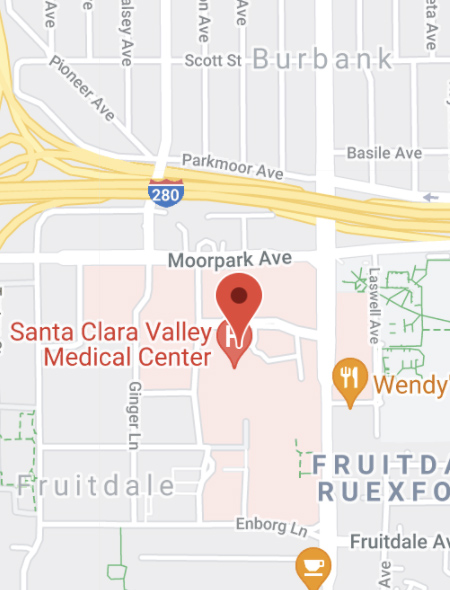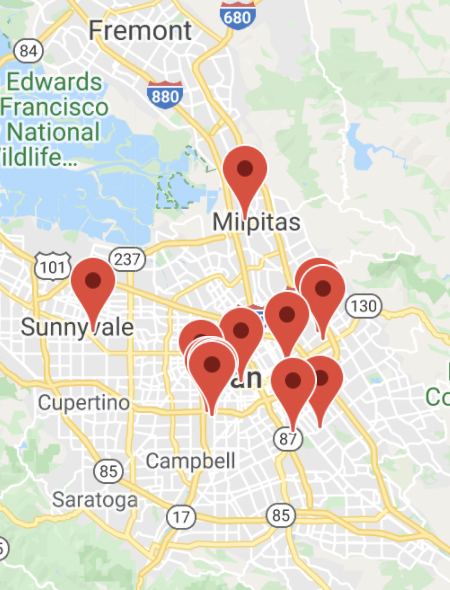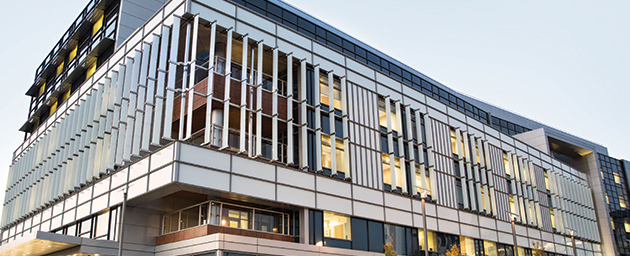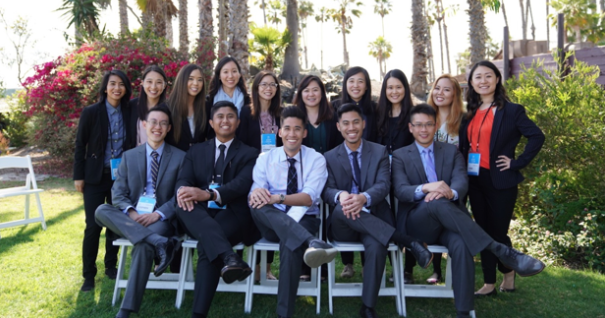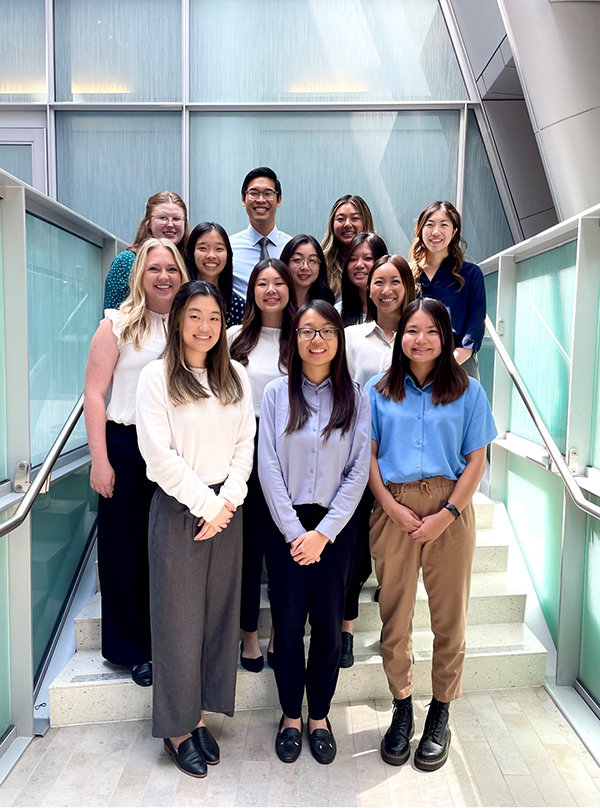Pharmacy Residency
PGY1 Pharmacy Residency
Our PGY1 Pharmacy Residency Program welcomed its first two residents in 2004 and received full accreditation by American Society of Health-System Pharmacists (ASHP) in 2005.
The residency program director is Oliver Hsu, PharmD, Assistant Director of Pharmacy; the residency program coordinator is Michelle Ito, PharmD, BCACP.
PGY1 Pharmacy Residency Program
The PGY1 Residency Program is a one-year postgraduate program that provides training and experience in the provision of pharmaceutical care and quality medication education to a diverse patient population in various areas of pharmacy practice.
The goals of the program are to foster development of leadership, professional education, and comprehensive clinical practice skills such that residents will become effective and marketable pharmaceutical care providers in a variety of practice settings. This program advocates the collaborative approach to problem-solving by its leadership and management, and the residents will be encouraged and challenged to use this strategy of teamwork to solve real-life practice situations as they arise. These goals will be achieved through experience acquired by completing rotations in ambulatory care and inpatient settings, precepting pharmacy students, researching and presenting the results of a year-long research project, and participating in multiple interdisciplinary committees.
Residents will complete training in pharmacy operations, required rotations, and multiple elective rotations during the 12-month residency program. The rationale for selecting the required rotations is to comply with ASHP standards and ensure that residents will acquire the necessary clinical skills to become effective practitioners of the future. Residents are encouraged to select elective rotations that match their individual preferences and which build upon past experiences. Required rotations and elective rotations are highlighted in the next section.
Note that there are four different tracks for our PGY1 Pharmacy Residency program. Schedules may be customized throughout the year, but the staffing component and initial schedule will be set based on track. You are welcome to rank one or all of our PGY1 programs.
|
NMS Code |
Name of Program |
Notes |
|
118513 |
PGY1-Acute Care |
Required rotation: Critical Care or Emergency Medicine |
|
118522 |
PGY1-Ambulatory Care |
Required rotation: TBD |
|
118521 |
PGY1-Academic Track |
Required rotation: track dependent Elective rotations can be more ambulatory care focused |
|
118523 |
PGY1-Public Health Track |
Required rotation: Infectious Disease and Response |
Clinical Rotations
-Required and Elective Rotation Length: 6 weeks each
|
Acute Care track
Ambulatory Care track
Academic track
Public Health track
|
Elective Rotations*
*Additional elective rotations may be created and offered to the resident during the year, if new services are started. |
Longitudinal Rotations (all tracks)
- Committee work (one semester each):
- Formulary Management Subcommittee/Medication Utilization Management Subcommittee
- Specialty Pharmacy Subcommittee
- Anticoagulation Task Force/Opioid Stewardship/Antimicrobial Stewardship Program
- Medication Safety Subcommittee- Santa Clara Valley Medical Center Hospital and Clinics
- Medication Safety Subcommittee- O’Connor Hospital & St. Louise Regional Hospital
- Durable Medical Equipment
- Public Health/Immunization Committee
- Residents may be subject to placement based on the needs of each committee.
- Year-long rotations:
- Residency Project
- Teaching Certificate
- Academic Track: Touro University program
- Acute Care Track, Ambulatory Care Track, Public Health Track: UOP-CSCHS program
RESIDENCY ACTIVITIES
Research Projects
Each resident will be required to design and write a research proposal. If Institutional Review Board (IRB) approval is required, the resident will present to the IRB committee. The primary focus of the research project is dissemination of information that benefits pharmacy practice or the medical community. The Residency Program Coordinator and primary preceptor will guide the resident throughout the year with the intent of presenting the research results at a conference, such as the Western States Regional Residency Conference in San Diego, California. In addition to acquiring time management and presentation skills, the resident will improve his/her writing skills upon completion of the research project.
Teaching
Our Residency Program is affiliated with a variety of pharmacy schools, including University of the Pacific School of Pharmacy, Touro University California College of Pharmacy, and UC San Francisco School of Pharmacy. Dozens of pharmacy students per academic year complete their clinical clerkship rotations (APPEs) within our institution, thus providing the residents many opportunities to precept pharmacy students. Residents will assist clinical pharmacists in precepting students, along with providing didactic education in leading conferences for the pharmacy students. Additionally, SCVMC is a certified provider of continuing education for pharmacists; residents will be asked to present a continuing education program during the year.
Pharmacy residents will complete a teaching certificate program that is run jointly by the Health System and the University of the Pacific. The academic track resident will complete a teaching certificate program through Touro University California.
Pharmacy Operations/Staffing
Staffing is required throughout the year and is determined based on the resident’s track. Acute Care residents staff in the inpatient pharmacy either for 4 weekend days per month with compensatory days off during the week, or as a block rotation. Ambulatory Care residents staff as a medication reconciliation pharmacist in primary care clinics and in the outpatient pharmacy either 1 day per week, or as a block rotation. Public Health track residents staff in Public Health operations (e.g. Travel and Immunization Clinic, VHC Lenzen Pharmacy) either 1 day per week, or as a block rotation.
Committee Work
Residents will be required to assist the coordinators of the Pharmacy & Therapeutics Committee and Subcommittees. Each semester, residents will be required to work on a project related to his or her assigned committee. During this experience, residents will gain an appreciation and understanding for medication errors, formulary management, financial analysis, regulatory compliance, and adherence to clinical practice guidelines.
Regional and National Conferences
In November, residents may attend the California Society of Health-System Pharmacists (CSHP) Seminar, an annual four-day meeting where residents showcase their institution’s residency program to prospective applicants and have an opportunity to attend continuing education programs and develop networking connections.
In December, the American Society of Health-System Pharmacists (ASHP) Annual Midyear Clinical Meeting provides similar benefits to that of the CSHP meeting, except on a broader scale, as this is a national conference.
In May, residents may present the outcomes of their longitudinal research project at the Western States Residency Conference, a gathering of residents and fellows from across the nation.
Conference attendance is optional, but encouraged. The residency program reimburses residents for at least 50% of registration costs, but the program is unable to reimburse residents for airfare (mileage reimbursement for driving is available). Hotel reimbursement is oftentimes granted, but this is not guaranteed like registration costs.
Qualifications for Acceptance
All applicants must fulfill the following criteria in order to qualify for acceptance into our PGY1 Residency Program:
- Graduate from an ACPE-accredited school of pharmacy
- Be eligible for pharmacist licensure in the state of California
- Demonstrate eligibility to work in the United States
- Obtain favorable recommendation letters from clinical faculty, preceptors, and/or former employers
- Demonstrate collegiality, clinical knowledge, interest in research, and the motivation necessary for successful completion of residency training
- Complete an interview with residency leadership, pharmacy supervisors, and preceptors
Application Process
For any questions, interested applicants should contact:
Michelle Ito, PharmD, BCACP
Residency Program Coordinator
[email protected]
The PGY1 Pharmacy Residency participates in the ASHP Residency Match Program. See the chart below for NMS codes.
|
NMS Code |
Name of Program |
Notes |
|
118513 |
PGY1-Acute Care |
Required rotation: Critical Care or Emergency Medicine |
|
118522 |
PGY1-Ambulatory Care |
Required rotation: TBD |
|
118521 |
PGY1-Academic Track |
Required rotation: track dependent Elective rotations can be more ambulatory care focused |
|
118523 |
PGY1-Public Health Track |
Required rotation: Infectious Disease and Response |
The following documents will be required of all prospective applicants to complete the application process. All materials are submitted via PhORCAS:
- General PhORCAS application (including letter of intent)
- Curriculum Vitae (include descriptions of activities completed during rotations)
- Official transcripts sent directly from applicant’s school of pharmacy to PhORCAS
- A sample of independently written work that answers the following prompt and includes citation of primary literature and evidence-based medicine (content should be a maximum of 500 words):
-
Prompt: Please answer one of the following questions:
- COVID-19: should everyone get a COVID vaccine booster?
- Should we require PGY3 residencies?
- Do you think pharmacist specialists impact health care outcomes?
-
- Three letters of references, with at least one letter of reference from a clinical preceptor. Remaining letters of references can be submitted by clinical preceptors, clinical faculty, and/or former employers. Reference writers should submit the PhORCAS reference form and are asked to provide specific comments on the candidate’s abilities to:
- Organize and manage time
- Accept constructive criticism
- Demonstrate independence and resourcefulness
- Work with peers and communicate effectively
The deadline to submit all documents via PhORCAS is January 2, 2024. Late or incomplete applications will not be considered.
Select candidates will be invited for a phone interview in January, and select candidates will be asked to participate in a second interview in February. If you are selected for a second interview, you will be asked to give a 15-minute PowerPoint presentation on a non-pharmacy-related topic. Your slides will be due the evening before your interview date.
Thank you for your interest in our program!
